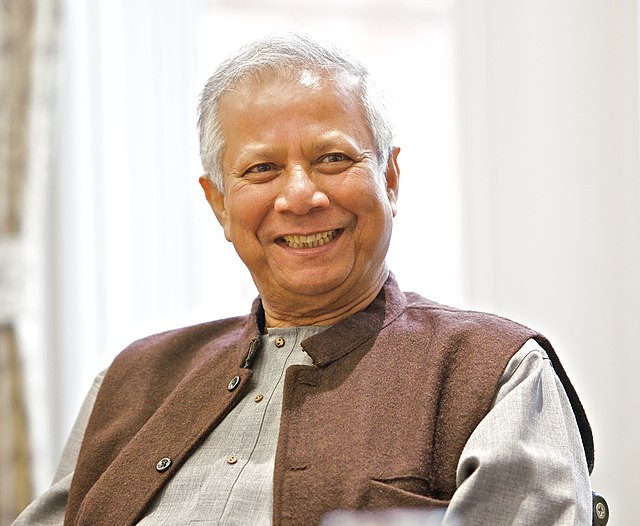n an emotional return to Bangladesh, Nobel Peace laureate Muhammad Yunus arrived in Dhaka on Thursday to lead a new caretaker government following weeks of student protests that led to the resignation and subsequent flight of Prime Minister Sheikh Hasina. Yunus, 84, known for his critical stance against Hasina, landed after undergoing medical treatment in Paris. His return marks a significant shift in the nation's political landscape as he prepares to oversee upcoming elections.
Yunus was greeted at Dhaka's Hazrat Shahjalal International Airport by senior military officials and student leaders who had supported his appointment to the interim government. "The country has the possibility of becoming a very beautiful nation," Yunus told reporters, emphasizing the importance of preserving the freedom achieved by the student protesters. Overwhelmed with emotion, Yunus held back tears as he referenced a student who had been shot during the protests, acknowledging the sacrifices made for the nation's freedom.
In a gesture of unity, Yunus addressed government officials and defense chiefs, calling for collaboration. "Now again we have to rise up. To the government officials here and defense chiefs - we are a family, we should move ahead together," he said. Yunus is set to be sworn in as chief of a team of advisers at 1430 GMT at the official residence of President Mohammed Shahabuddin.
The departure of Hasina's Awami League party from the interim government follows violent protests that resulted in approximately 300 deaths and thousands of injuries. Hasina resigned on Monday after prolonged unrest that included her official residence being stormed and ransacked. She is currently sheltering in the New Delhi area, a development that has sparked anger among some Bangladeshis towards India.
India's foreign ministry stated that it had no updates on Hasina's travel plans and emphasized that stability in Bangladesh is crucial for regional peace. Indian media has speculated that Hasina may travel to Britain, although these reports remain unconfirmed.
The student-led movement that ousted Hasina originated from protests against government job quotas, which escalated in July and resulted in a violent crackdown. The protests were also fueled by harsh economic conditions and political repression. The main opposition party, the Bangladesh Nationalist Party (BNP), had boycotted two national elections after the arrest of its leaders. The COVID-19 pandemic further exacerbated the country's economic woes, leading to high inflation, unemployment, and a $4.7 billion loan request from the International Monetary Fund.
BNP leader Khaleda Zia, 78, called for calm and an end to violence in a video address from her hospital bed. "No destruction, revenge or vengeance," she urged, as the BNP demanded elections within three months.
Upon his return, Yunus emphasized the need for unity and peace. "Bangladesh is a family. We have to unite it," he said. Security was tight at the airport to ensure his safe arrival amidst the country's ongoing unrest. President Mohammed Shahabuddin will administer the oath-taking ceremony, where Yunus is expected to announce his new cabinet.
Before departing Paris, Yunus had called for calm in Bangladesh. In a news briefing, he congratulated the student protesters for their efforts, likening their achievement to a "second Victory Day." He urged all stakeholders to remain peaceful and focus on rebuilding the nation.
Bangladesh's military chief, Gen. Waker-Uz-Zaman, expressed confidence in Yunus' ability to lead the country towards a democratic process. "I'm looking forward to going back home and seeing what's happening there, and how we can organize ourselves to get out of the trouble that we are in," Yunus said.
In a move that underscores the dramatic political shift, a tribunal in Dhaka acquitted Yunus of a labor law violation case earlier on Wednesday, clearing his legal obstacles. The president dissolved Parliament on Tuesday, paving the way for the interim administration to schedule new elections.
Hasina's son, Sajeeb Wazed Joy, initially stated that his family would step back from politics, but later reversed his stance, calling for continued engagement. "You are not alone. We are here. The family of Bangabandhu has not gone anywhere," he said, referring to his grandfather, independence leader Sheikh Mujibur Rahman.






